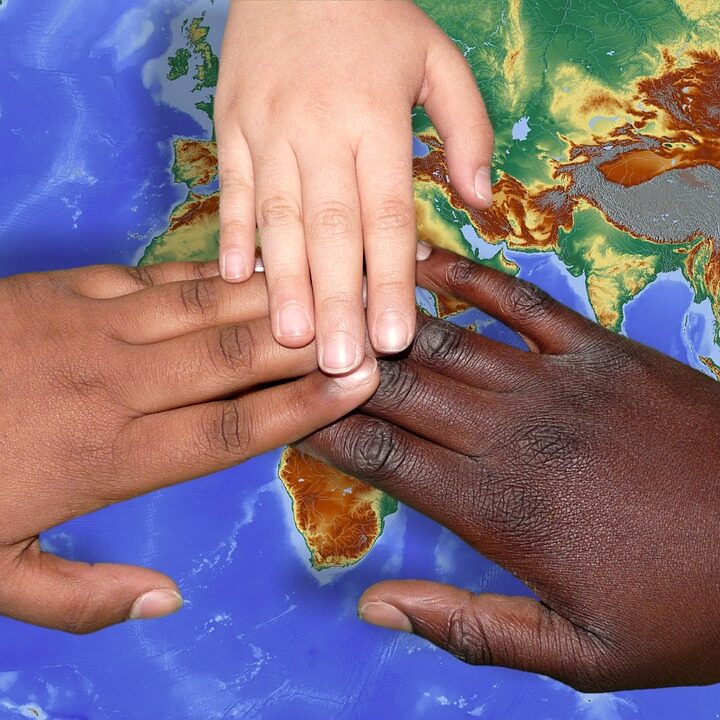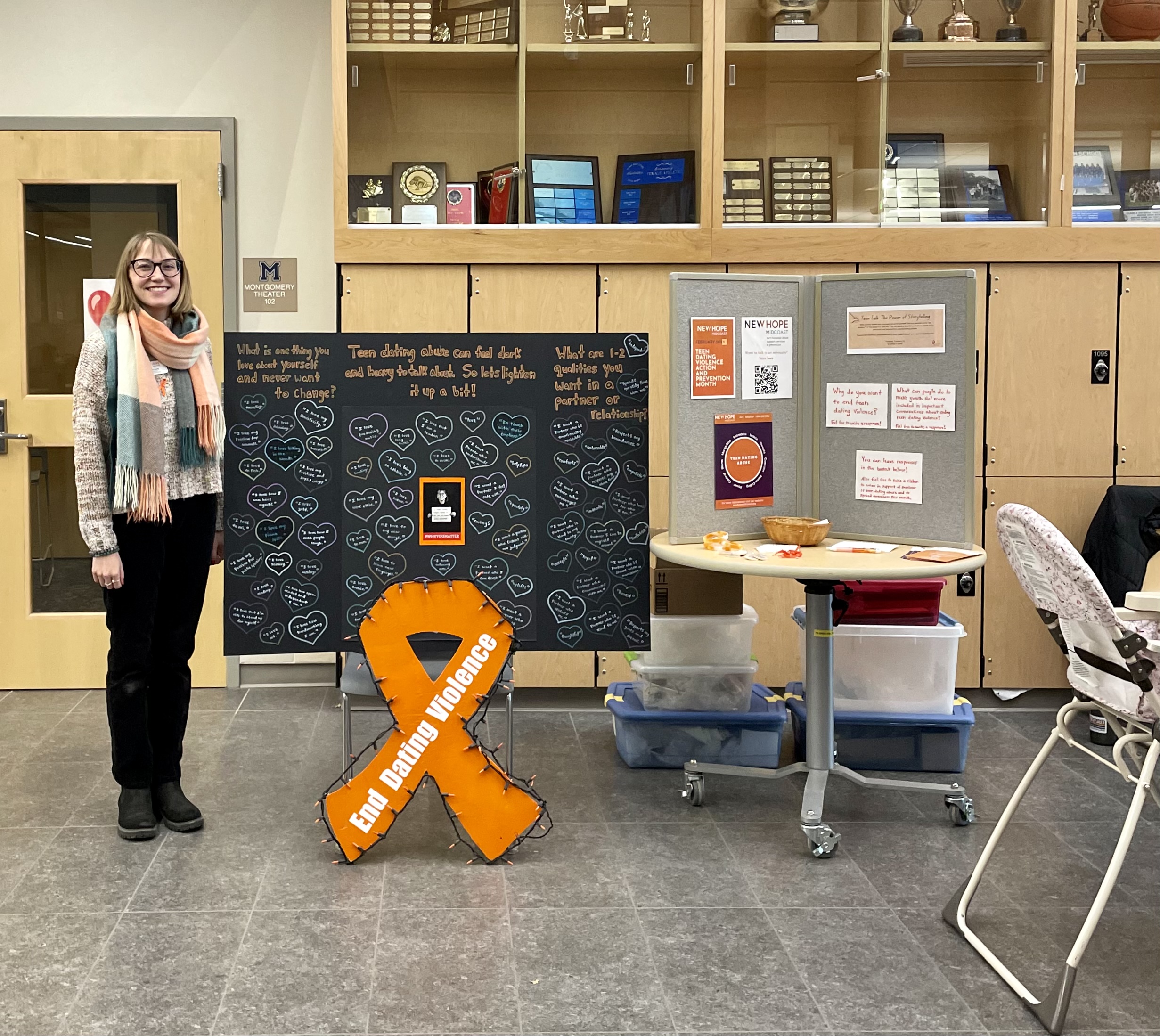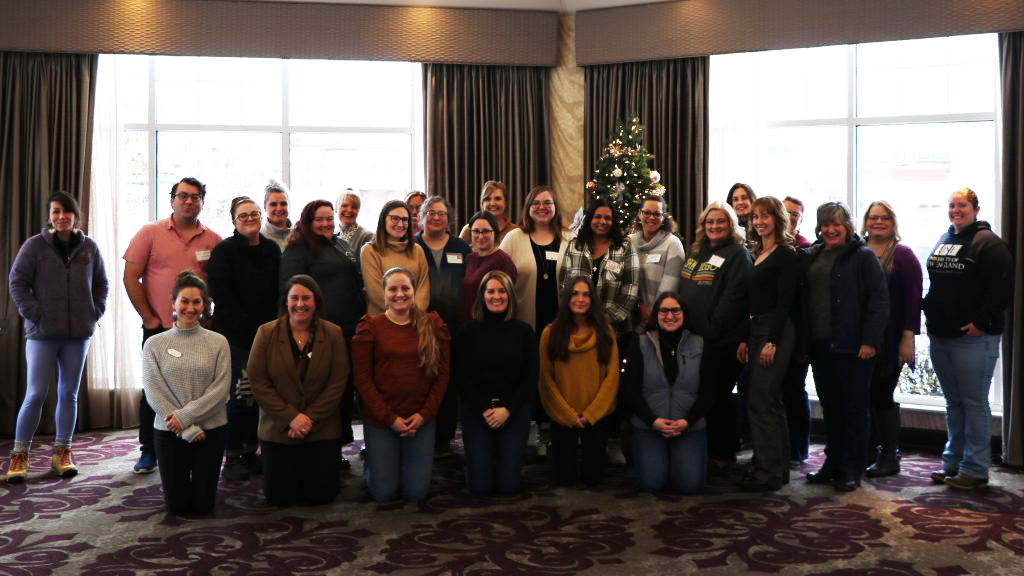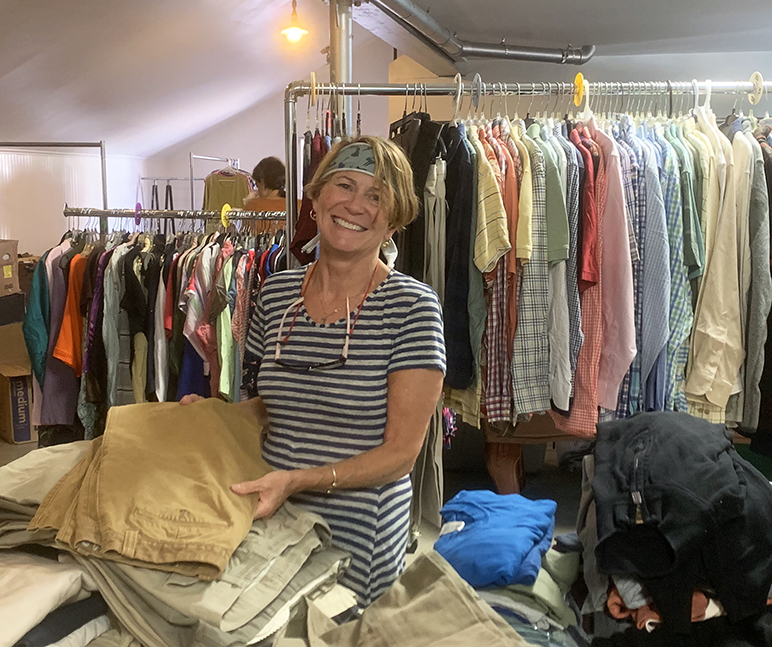Newsletter: March, 2024

A Word from Our Executive Director
Dear New Hope Midcoast Supporter,
We are excited to let you know that we’ve completed a new Strategic Plan that will strengthen the network of community organizations and individuals who support survivors and work toward ending domestic violence. It will help destigmatize and prevent domestic abuse, and will guide how we at New Hope Midcoast broaden and enhance the ways survivors and their families get the help and support they need. Clients, community leaders, and partners, including sheriff’s, deputies, lawyers, healthcare providers, and educators, all contributed to shaping our understanding about how our organization should grow to serve victim-survivors better. We are grateful for their participation in this process. The full plan is available here. We hope that you will take a look!
Our Survivor Tribute Matching Challenge is next month. Click here to see how your donations will be matched dollar-for-dollar in April! Free Roundtable Discussions on the Impact of domestic abuse in local communities are also coming in April. Click here to join us in Bath or Belfast! And please consider donating your new and gently used high quality clothing and accessories (jewelry, hats, belts, scarves, mittens, bags and lightly worn shoes) to our 2024 Shop for Hope sale coming July 11-13 to the Flanagan Center in Rockland!
Please read on for information on what our teams have been doing. We appreciate your support as we serve our local communities in Sagadahoc, Lincoln, Knox, and Waldo Counties.
Sincerely,

Rebekah, Executive Director

Honor Someone and Double Your Impact with Our April Survivor Tribute Matching Challenge!
The challenge will run during the month of April and we ask that you donate to our Survivor Tribute Fund in honor – or in memory – of someone you know who has given back to their community. Recognize a friend, family member, teacher, coach, healthcare provider, member of law enforcement, or employer with your donation April 1-30 and double your impact while supporting our work with people impacted by domestic abuse. Our community has already contributed $20,000. Now you can help us obtain the match! Click here to make your online donation or send your donation today to New Hope Midcoast, Attn; Development, P.O. Box A, Rockland, ME 04841.

Register Now for Roundtable Discussions!
New Hope Midcoast trained advocates will offer domestic abuse Roundtable Discussions from 10:30 a.m. – 2:00 p.m. April 25th at the Patten Free Library in Bath and April 26th at the Belfast Free Library in Belfast. Attendees will learn about domestic abuse, discuss the impact of this health crisis in their local communities and share ideas about how to address it. Sessions are free; morning snack and lunch are included. Pre-registration is required. Click here to register or contact Joan at or (207) 691.5969.

Residential Program: A Success Story
Asylum Seekers Affected by Domestic Abuse Are Never at Rest
Asylum seekers who are victims of domestic abuse are particularly vulnerable; they’re in a new land, may not yet know the status of their immigration, and have often not yet developed a social network. Abusers may threaten to call the authorities, use their status to prevent their partner from obtaining citizenship, or threaten deportation if their partner reports the abuse. New Hope Midcoast advocates worked with one asylum seeker whose abuser had succeeded in separating her from her children. She had no income of her own, wanted to live a life free from persecution and abuse, and was seeking to reunify with her children.
Human rights violations against women occur worldwide. Several forms of abuse may be inflicted: psychological, physical, sexual, financial and emotional. Fearful, asylum seekers may be exploited and coerced into specific acts or agreements. Yet these individuals do not need to remain with a violent or abusive partner for immigration purposes. They need to receive support and protection that takes into account their unique circumstances including the culture from which they hail, gender norms, and customs that may impact their decisions. Sama’s abuser left her stranded and isolated at home; she had very little income, no transportation, and few resources for meeting her needs and the needs of her children.
New Hope Midcoast advocates connected Sama with local resources for New Mainers. The Immigration Resource Center provided culturally sensitive assistance; the Immigrant Legal Advocacy Project (ILAP) offered direct legal services and advocacy to keep her family intact and moving toward self-sufficiency. Sama applied for housing but challenges persisted; she needed to change housing programs as she and one of her children would not be covered by the voucher she’d obtained due their non-immigrant status. This made the housing she’d worked hard to secure unaffordable for the long-term. Advocates worked quickly to assist her. She is now settled in new, long-term housing and working to obtain a divorce.
Like many victims, the road is filled with barriers that require continuous negotiation. Sama’s journey is particularly unique, challenging, and unimaginable. She struggles to provide for herself and for her children and must simultaneously learn new ways of life while confronting the fears associated with domestic abuse. A new language, new currency, new customs, new ways of thinking; it’s all foreign, scary, and requires continuous problem solving. But Sama is moving toward independence and actively seeks out suggested resources along the way. She feels considerable pressure but remains dedicated to seeking asylum for herself and her children who now live with her. She is open and communicative of her needs through case management and looks to the day when she can raise her children safely and peacefully as United States citizens.

Education
Our education team recently expanded educational offerings during Teen Dating Violence Awareness/Action Month to include options outside the classroom like youth-oriented events and conversations about relationships (Morse High School and Lincoln Academy), an interactive workshop at Skidompha Library, and book displays with free teen books about relationships and dating abuse.

Legal Advocacy
In December our legal team provided two days of training on non-fatal strangulation for 60 corrections and healthcare staff at Two Bridges Regional Jail, and we’ve been asked to come back in June, 2024. In February, the team presented on domestic violence and non-fatal strangulation for new hires at the Boothbay Harbor Police Department.
One of our advocates recently attended the Maine Victim Assistance Academy (MVAA) a victim-centered, interdisciplinary, evidence-based training designed to improve the capacity of victim/survivor advocates and allied professionals serving crime victims and survivors in Maine. Topics included victimization in Maine, the Maine criminal justice system (i.e., victim rights, sentencing, child protection, and tribal courts), and best practices for achieving a coordinated community response to domestic abuse. Stakeholders and planning partners included the Maine Coalition to End Domestic Violence, Wabanaki Women’s Coalition, and the U.S. Attorney’s Office for the District of Maine to name only a few.
Our advocates are highly trained and always learning so they can better serve Midcoast Maine residents!

Donate Your New and Gently Used Clothing and Accessories Today!
Our 12th annual sale is coming July 11-13 to the Flanagan Center in Rockland and you can help! Donate your high quality new and gently used clothes and accessories (jewelry, handbags, scarves, hats, mittens, gloves, belts and like-new shoes) between now and July 3rd. Items may be for all genders, sizes and seasons. Clear your closets and support our work with individuals affected by domestic abuse.
Contact or call Joan at (207) 691.5969 to arrange for drop off and be sure to click here for more information regarding donations. Thank you!
Would your business like to sponsor this event?
Would you like to volunteer at Shop for Hope?
Just use the contact information above. We’d love to hear from you!

In the News1
Despite an overall decrease in homicides, the number of female homicide victims continues to rise. In 2022, 48,800 women or 133 women daily were killed by intimate partners or family members. Women and girls were disproportionately represented. Fifty three percent of all homicides occurred in the home; 66% of these were committed by an intimate partner.
A 29% 2022 increase in North America points to a continued public health crisis. This is compared to a downward trend in some regions of South and Central Americas, a reduction in female intimate partner/family-related homicides in regions of Europe, and a generally slow reduction in Asia.
Repeat episodes make clear the opportunity to intervene earlier in these horrific and intentional acts. Legal institutions and relevant others need to (click here to continue reading)
- Consider criminalizing femicide if not already in place
- Increase risk assessments and victim protections
- Revisit acceptable behavior at all levels to address the belief systems that underscore homicides and, specifically, intimate partner violence
- Establish multi-sectoral committees that regularly review recent homicides and court cases to identify risk factors, improve responses, and ultimately prevent acts of domination and control
1 Visit the United Nations Office of Drugs and Crime’s report entitled Gender-Related Killings of Women and Girls (Femicide/Feminicide), 2013 at https://www.unwomen.org/sites/default/files/2023-11/gender-related-killings-of-women-and-girls-femicide-feminicide-global-estimates-2022-en.pdf for the source of the information in this piece.

Community of Hope Columns
Have you seen our monthly news columns on issues related to domestic abuse? Click on the titles below to view our two most recent articles:
- “Economic Abuse: Do Not Pass Go” by Hillary Waterman, Community Prevention Coordinator
- "Impacts of Abuse on Mental Health" by Lori Rodriguez, Education and Outreach Director
